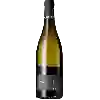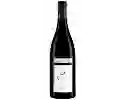
Domaine de Font AlbaVentoux Rosé
In the mouth this pink wine is a powerful with a nice freshness.
This wine generally goes well with pork, poultry or rich fish (salmon, tuna etc).
Taste structure of the Ventoux Rosé from the Domaine de Font Alba
Light | Bold | |
Dry | Sweet | |
Soft | Acidic |
In the mouth the Ventoux Rosé of Domaine de Font Alba in the region of Rhone Valley is a powerful with a nice freshness.
Food and wine pairings with Ventoux Rosé
Pairings that work perfectly with Ventoux Rosé
Original food and wine pairings with Ventoux Rosé
The Ventoux Rosé of Domaine de Font Alba matches generally quite well with dishes of pork, rich fish (salmon, tuna etc) or shellfish such as recipes of spaghetti squash with cream and bacon, norwegian salmon parmentier or shrimp in red sauce.
Details and technical informations about Domaine de Font Alba's Ventoux Rosé.
Discover the grape variety: Plavac mali
Croatian Dalmatia more precisely. It can also be found in Greece (Macedonia), Montenegro, Italy, Bulgaria and Romania. According to genetic analyses conducted by the California University of Davis (United States), it is the result of an intraspecific cross between zinfandel (called crljenak kastelanski or pribidag in Croatia) and dobricic, another Croatian grape variety that is now somewhat endangered. - Synonyms: pagadebit veliki, sarak, zelenak (for all the synonyms of the grape varieties, click here!).
Last vintages of this wine
The best vintages of Ventoux Rosé from Domaine de Font Alba are 2014
Informations about the Domaine de Font Alba
The Domaine de Font Alba is one of of the world's greatest estates. It offers 20 wines for sale in the of Ventoux to come and discover on site or to buy online.
The wine region of Ventoux
The wine region of Ventoux is located in the region of Rhône méridional of Rhone Valley of France. Wineries and vineyards like the Domaine Saint Jean du Barroux or the Château Unang produce mainly wines red, white and pink. The most planted grape varieties in the region of Ventoux are Mourvèdre, Clairette and Roussanne, they are then used in wines in blends or as a single variety. On the nose of Ventoux often reveals types of flavors of cherry, gooseberry or anise and sometimes also flavors of eucalyptus, tropical or pineapple.
The wine region of Rhone Valley
The Rhone Valley is a key wine-producing region in Southeastern France. It follows the North-south course of the Rhône for nearly 240 km, from Lyon to the Rhône delta (Bouches-du-Rhône), near the Mediterranean coast. The Length of the valley means that Rhône wines are the product of a wide variety of soil types and mesoclimates. The viticultural areas of the region cover such a distance that there is a widely accepted division between its northern and southern parts.
The word of the wine: Pagan
See savagnin.














